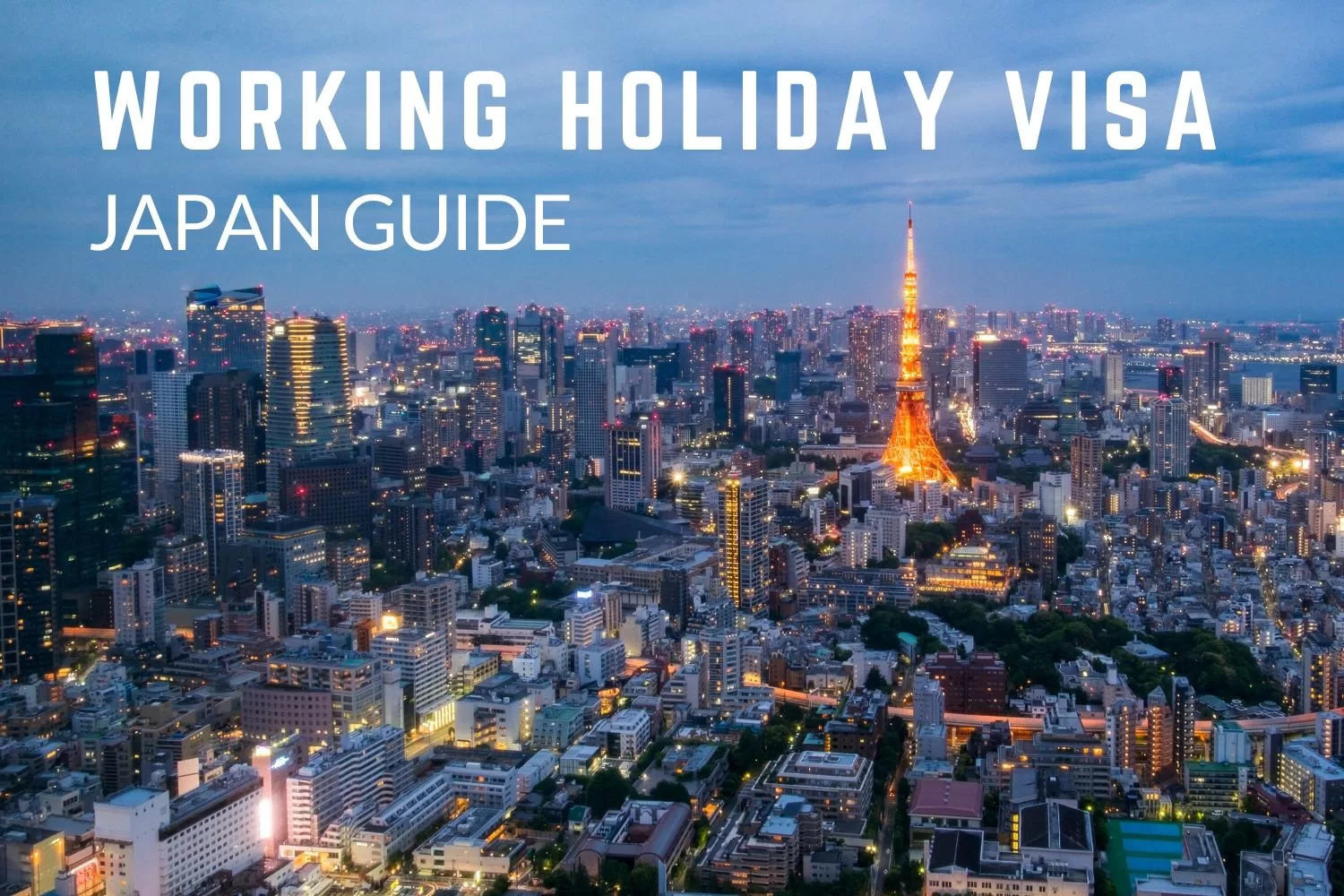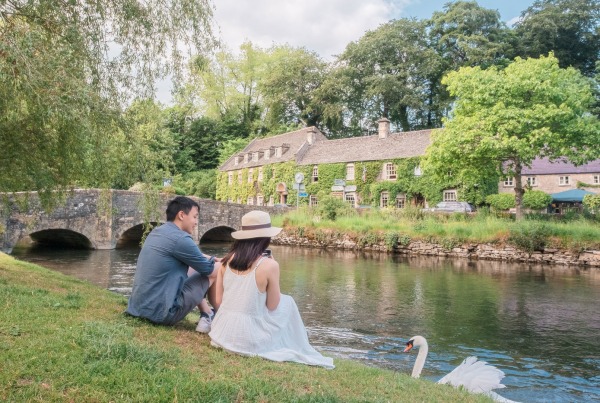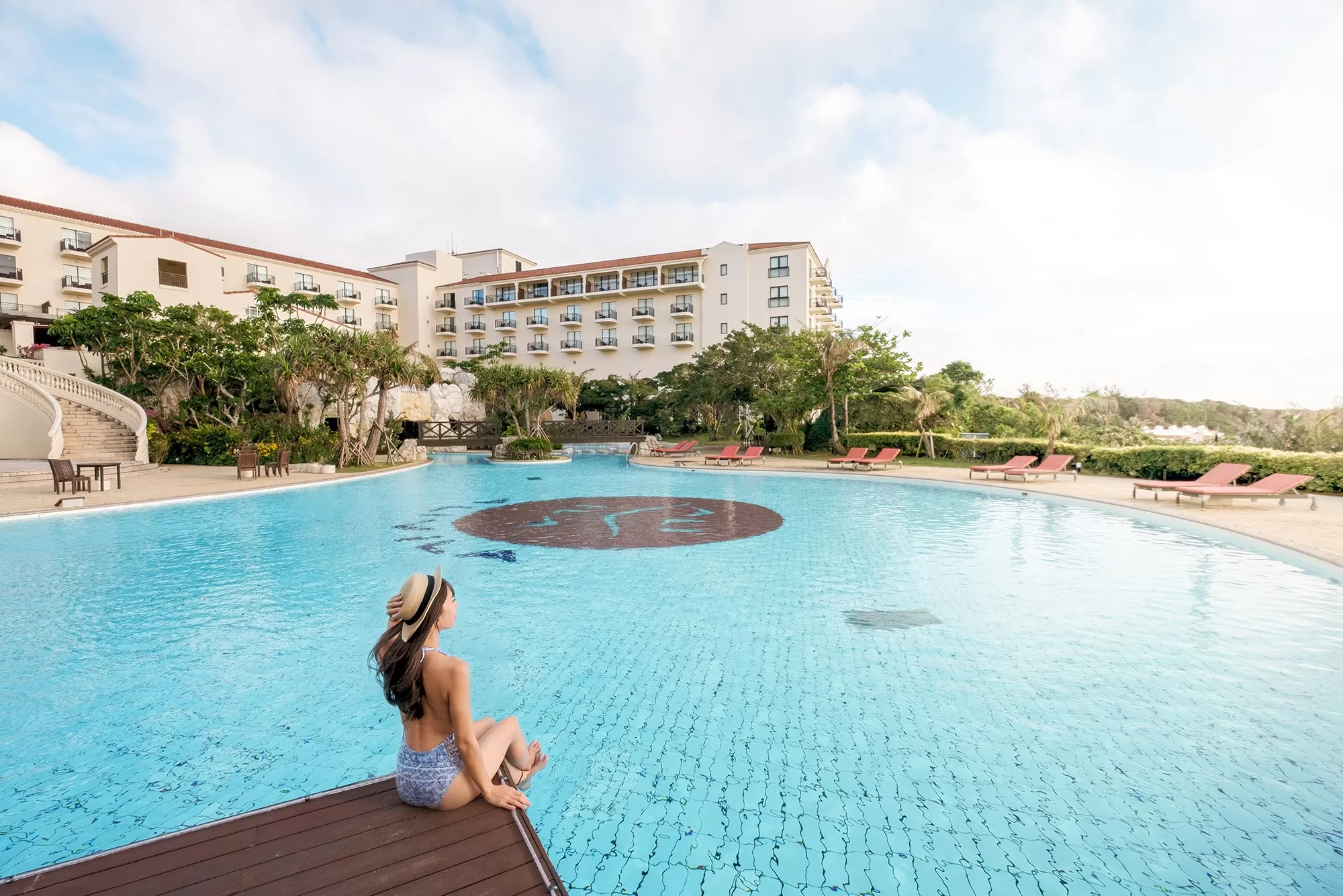
In this guide, we dive into all the details of a Working Holiday Visa Japan – from what it is, how to get one, why you should get one, our thoughts on the visa and how to find a job once you’re in the country.
What are Working Holiday Visas?
Working Holiday Visas are essentially visas that provide travellers with a temporary residence permit and allows them to take on work while abroad. The programmes are available in a whole host of countries. Designed to provide the “youth” with opportunities to appreciate the culture of another place while being able to supplement their travels with some sort of income.
The three main differences between a Working Holiday Visa compared to a regular Tourist Visa:
- You can undertake employment
- You are a temporary resident
- The length of time you can stay
Why would you want a Japanese Working Holiday Visa?
It really boils down to two reasons:
- You want to stay in Japan for longer than a Tourist Visa allows
- You want to work while in Japan
We wanted to experience all four seasons in the country in one go – obviously this would take longer than the 3 months we would be allowed if we were on a Tourist Visa. We also wanted to give ourselves enough time to really soak up the Japanese culture.
Can anyone apply for a Japanese Working Holiday Visa?
Unfortunately not. There are a few requirements before you can apply:
Be a resident of one of the 23 countries open to the programme (listed below)
Argentina, Australia, Austria, Canada, Czech Republic, Chile, Denmark, France, Germany, Hong Kong, Hungary, Iceland, Ireland, Lithuania, Republic of Korea, New Zealand, Norway, Poland, Portugal, Slovakia, Spain, Taiwan, United Kingdom
Aged between 18-30 years of age
This includes the ages 18 and 30. Though depending on your country the age range may vary e.g. you must be aged between 18-25 for Australia. You can check here.
Possess a valid passport
As always, check the expiration dates of your passports before you intend to book your tickets to fly.
A return travel ticket or sufficient funds with which to purchase such a ticket. And possessing reasonable funds for the maintenance of his/her stay during the initial period of stay in Japan.
This differs depending on which country you’re applying from. For the UK (where we applied from), they required £2,500 cleared funds in our bank account or £1,500 if we had already bought a return ticket to and from Japan. We didn’t want to buy our flights before given the visa to go so we made sure to have at least £2,500 available.
Being in good health
Rather vague but presumably to prevent illnesses reaching the country of Japan. We never had to undergo examinations, only asked if we had any illness.
Never had a Working Holiday Visa Japan in the past
Only one Working Holiday Visa Japan per person.
The limit of Working Holiday Visa Japan has not been reached
Most countries have a limit as to the number of Working Holiday Visas available for a given year. Unfortunately, until you’ve submitted your application, there’s no way to know whether the limit has been reached… silly I know. Though, you can call your local Japan embassy to ask when their visas refresh for the year. We were told the UK refresh theirs in April which was perfect for us as we were applying in April. You can find the limit of your country here.
Application procedure
The procedure we’ll cover hereon will be relevant to those applying from the UK. Although, we spoke to other working holiday travellers from other countries who mentioned their procedures were pretty similar.
To start, you’ll need to get a few documents ready:
Passport
Not a photocopy but your original passport
A completed visa application form
You can download the form from the Embassy of Japan website. The form itself is fairly straightforward. The only points which might be of concern – if you have yet to book your flights and accommodation – are the date of arrival, the port of entry and names and addresses with whom the applicant intends to stay. We wrote estimated dates and the airport we were considering landing at. Please note that this does not change the start date of your visa. For the address, we put down the hotel we were considering. In the end, we never stayed at that hotel and it was fine.
Passport photo
Taken within the last 6 months and approx 35mm x 45mm.
CV
Like the ones you use when searching for a job. We tailored our CV to only show our name, address, contact details, employment, and education history, and finally skills and interests. During the application process, they only glanced at this.
Outline of intended activities
This a document to show what you are planning to do while in Japan. Again, it doesn’t need to be perfect as no one knows what they’re exactly going to do throughout the year. We wrote down each month with some rough ideas of places we wanted to visit and when/where we might do some work. Don’t worry if your intended activities look way too much fun and way too little work – that’s the point of a Working Holiday Visa! Your main intended purpose is to travel to Japan. Having said that, it would be ideal to have at least one intended work activity in there. At the time, we didn’t have anything confirmed but we wrote down the cities we would be searching/hoping to work.
Written reason for applying for the Working Holiday Visa Japan
Think of this as the cover letter to your CV. We wrote about the reasons we each wanted to travel to Japan. Sarah had put down hers as her love for Japanese culture and her desire to learn the Japanese language. Whereas for myself, I put down the desire to learn from Japanese photographers and capture the beauty of the country. We each wrote about why we required a Working Holiday Visa Japan to achieve these goals. Lastly, we highlighted how the programme would impact us as individuals in our future goals. The letter should be no longer than one side of an A4 paper.
Here’s Eric’s letter as an example
Printed Bank statement
3 bank statements covering the 3 months prior to application. The statements are used to check whether you have the necessary funds to meet the requirements.
Once you have gathered all the necessary documents you will need to head on down to the Embassy of Japan. Appointments are not required.
At the embassy, we had to show our passports and pass through security. Inside, you will be given a ticket number for an “interview”. I write interviewed in quotation marks as it’s more of a general conversation. At no point did I, or Sarah, feel we were being interviewed. Once all documents had been checked, we were asked to hand in our passports. They hold onto your passport until your application comes back. Finally, we paid the £21 visa fee – cash only.
It can take up to two weeks to hear back but we got a call within seven days. They didn’t actually tell us over the phone whether we had been granted the visa or not. This made our hour journey into London pretty nerve-wracking.
Back at the embassy, they handed our passports back with our Working Holiday Visa Japan stamped inside. Note, the one year visa starts on the day it gets approved.
What to do when you arrive in Japan
Fast forward to your arrival in Japan. There’s no need to fill in an arrival card, instead, head straight for a member of staff before immigration check to let them know you’re entering via a Working Holiday Visa. We filled in a different form before they took our photo required for our Japanese Resident Card. The resident card became the only ID we really needed inside Japan.
Registering a permanent address
Once through immigration, you’ll be given a letter which tells you to register a “permanent” address within 14 days at a local ward office. This went on to become the most frustrating process of our Working Holiday Visa Japan. Hotel addresses are not accepted because they are not regarded as permanent addresses. This was a big dilemma for us as we were planning to move almost every week, which meant we would not have a permanent address.
We went down to the local ward office who, considering our situation, couldn’t provide us a solution. Thankfully they said we only really needed an address on our resident card if we were taking up work. Unfortunately, the immigration department still required a registered address within 90 days otherwise you could have your visa cancelled. So what did we do? Well, we just put down our accommodation address and left out the name of the hotel – we even left it as our permanent address as we moved around throughout the year. You will be sent a letter so make sure you inform the accommodation that you are expecting mail so that they can pass it on to you. You’re also supposed to unregister when you leave the address but we decided it was more of a hassle trying to register again so we left it.
Note, if you ever decide to register a different permanent address and are still registered elsewhere (like we were), you will need to unregister back at the original ward office in person. Yes, it’s crazy but they can’t unregister you via another local ward office. For those who want to take up work (hence will need to register a permanent address), we suggest you speak to your employer beforehand. We heard from other travellers that some will be fine with you registering your permanent address at their home.
How to get a job
Finding a job in Japan as a Working Holiday traveller can be difficult, especially if you don’t have any Japanese language ability. The most common job most take-up is as an English Teacher. Other possible jobs include farm work, hostel/hotel work, retail or temp office work. The best place to find jobs is on gaijinpot.com where you can even filter jobs to only those that don’t need Japanese language skills.
We never actually took on local work which paid when we were in Japan, as we make our living as freelance photographers and writers. The only work we did do was voluntary which provided food and accommodation in exchange for our time. All voluntary jobs we found were through workaway.info – this is a great site, especially if you’re travelling as a couple as you can apply for jobs together. We highly recommend voluntary work if you have some money saved up already and just looking to cut some costs. It also allowed us to integrate with the local communities and it was fairly easy to find jobs.
Was it worth it?
A great question to round off this guide, was the Working Holiday Visa Japan programme worth doing? Well, if like us, you’re under 30 and looking to immerse yourself in Japan and live like a local – there is definitely no simpler way. We look back at our year in Japan as one of the fondest of our lives. We only wish we could do it all over again.
If you have any further questions, just drop a comment below or send us an email and we’d be more than happy to answer and help if we can.
Information in this guide is correct at the time of writing, please double-check with your embassy for the most up-to-date information.

 Hello, we’re Eric and Sarah – a couple of travel photographers and creatives from the UK.
Hello, we’re Eric and Sarah – a couple of travel photographers and creatives from the UK.


Hi Sarah and Eric, great post, thanks for all the info! I’ve decided to apply for a WHV in the near future. I have a question – when you get approved, the visa is valid for one year. Then once you actually arrive in Japan – you are permitted to stay in Japan for a year from that date, is that correct? I’m thinking of applying for the visa this month but probably won’t fly out there until next Spring.
Hey Charlie, how exciting! Unfortunately, the visa starts immediately once it gets approved regardless of when you arrive in Japan. Unfortunately, there’s no real way around this as it can take up to a month to get your visa approved (though ours took under a week). Hopefully, this helps and if you need any further information just send us a message anytime!
Eric
Hi Sarah/Eric,
I’m considering applying for the Working Holiday Visa (UK applicant). I’d be intending to go in 2021 – 2022. Applications, according to the website open from April – March, so does that mean I’d apply for in April 2021 presumably?
Thanks.
Hi Harry,
That’s awesome, we hope you enjoy your time out there as we did! You can apply any time of the year as long as applications are not full. We were advised at the time of our application that it is very rare that Working Holiday Visa’s for UK applications ever reaches its limit so you don’t have to be too strict with applying right at the start of the application date.
We would recommend applying for the visa when you’re ready to go as your one year starts from the day your visa gets approved. For example, if you’re thinking of starting your year in Japan in June 2021 you’ll be wasting several months by applying in April 2021. Hope this makes sense. If not, we’d be happy to provide more info 🙂
Hey Sarah and Eric,
Thank you for this article 🙂 Super helpful.
Just a quick question — if I’m in Japan only for 4-5 weeks but meantime working voluntarily in return of food and accommodation (like the examples on workaway), do I still need to get this visa?
Thank you!
C
Hi Carol, thanks we’re glad it was useful for you 🙂
For any type of work (including voluntary work like the ones you find on Workaway which provide accommodation and food in exchange) will require a visa even if money is not involved – a working holiday visa would work fine. If the voluntary work is for a registered charity you can apply for the Volunteer Visa though you’ll need to check whether this is available for your country (we can only confirm it is for British citizens). Here’s a link for you to find out more https://www.uk.emb-japan.go.jp/itpr_en/index_000073.html
Hi guys! Hope youre well, thank you so much for this very helpful article. hoping you still check this, I have a question.
I’m also from the UK near london, and i think i’m going to go for this working visa, its april now so i think i need to jump on this. But then i’m also worried about how soon i would get the visa, it could be immidieatly or not at all because of the corona virus. Do you think it would be hard at the moment or competitive to get a working visa?
Thank you for any insights / advice
Vincent
Hi Vincent, we’re glad you found it helpful.
You should give the Japanese embassy in London a call first to check whether they’re currently still offering Working Holiday Visas as Japan still has a ban on tourists entering the country. As the main activity of a Working Holiday Visa is travel we would assume that they would be suspending visas until further notice.
If they are still offering them (and everything is ok with your application), you should expect your application to be approved within a couple of weeks of application as there will hardly be any competition. We applied during more normal times and were told that almost every year they don’t reach the limit on how many Working Holiday Vias they are allowed to give out.
Hopefully, this helps, but the main takeaway is to give the embassy a call as they’d be able to immediately inform you.
Let us know if there are any other questions we can help answer 🙂
Eric
Hi eric!
Thank you so much for getting back to me, that is incredibly helpful and puts some worries to rest on the competition side of things.
I’m basically going to wait for the visa process to start again and apply and hopefully get all my things together and sorted by then!
vincent
Hi! Thank you for this helpful article.
I already have secured a part-time job in japan and they are providing my accommodation. I assume on my application form I can fill it in with their details and this won’t be an issue? Shall I take my contract with me when I go to the embassy for my appointment?
Any help would be appreciated!
Thanks,
Hannah
Hi Sarah and Eric, thank you for writing up your experience! I am from the UK and in a similar position where I plan to travel around Japan throughout my working holiday with the odd bit of volunteering here and there, rather than work from a homebase.
My friend has kindly offered to let me use their address when registering at the local ward office. I was wondering, when registering your address with your local ward office, did you have to sign up and pay for things such as the national health insurance and pension scheme despite not doing paid work? Was anything actually sent to your homebase in the end?
All the best,
Jenni
Hi Jenni, how exciting! Hope you enjoy your time in Japan and make the most of your time there, we still look back very fondly on our year living there.
We didn’t have to pay for national health insurance nor pension scheme. As you mentioned, we were not payed and was not seen as employment but rather volunteering. And no nothing was actually sent to the address we registered with in the end – please note though this was several years ago and things may have changed since. If you have any other questions please let us know 🙂
Sarah and Eric